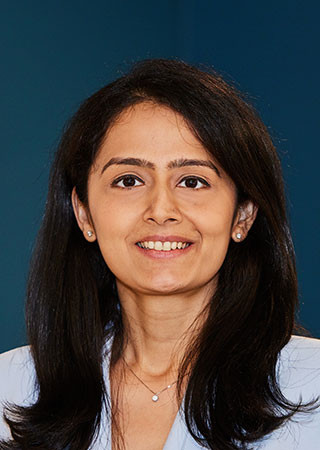Designing workplaces that embrace neurodiversity
Discover how designing for neurodiversity creates workplaces where everyone can thrive. Explore our top...
Sameeha's Spanish adventures with the Sustainable Design Collective


Operating as a 'think tank' within the workplace design community, the Sustainable Design Collective is committed to identifying developments and new initiatives in planet-conscious best practice.
I’ve recently joined the Collective alongside industry peers, whether they be architects, manufacturers, design houses or furniture studios. Together, we’re working to share our respective knowledge and experiences to make the built environment industry more sustainable and fit for the future.
One way we strive to achieve this is by drawing inspiration from outside of our London ‘bubble’. So, each year the collective makes a trip to visit businesses leading the conversation when it comes to sustainable design practice. This year, colleagues from the collective and I headed to Alicante for a weekend of workshops, tours and talks.
The trip was hosted by furniture brand ACTIU and surfaces manufacturer COSENTINO, who took us to their incredible factories and industrial parks, to share their sustainable endeavours with us. Here are some of my key takeaways.

Sustainability, as defined by the United Nations, is about “meeting the needs of the present without compromising the ability of future generations to meet their own needs”. This covers the environment, yes, but also the economy and wider society. ACTIU’s headquarters in Alicante is the first industrial park in the world to receive a WELL v2 and LEED Platinum Re-certification for consecutive years, which explores how the interior of a building directly influences the health of those operating within it. Not only is a WELL v2 and LEED Platinum building sustainable from a planet perspective, but it’s contributing to the long-lasting health from a people perspective too.
Stepping inside, it's clear to see how ACTIU achieves this. Trees line the middle of the corridor-style atrium, which brings the outside in and contributes to better air quality. In contrast to other industrial buildings, light cascades throughout the factory space thanks to floor-to-ceiling windows and a ceiling made from glass and acrylic panelling.
Similarly, on the factory floor of CONSENTINO, pressure washing of slabs using water has replaced the liquid chemicals formerly used. This change creates a safer environment for the factory employees, contributing to better occupant health. The industrial campus in the arid region of Alicante where water is scarce, is designed with one of the best water management strategies, where 99% of the water is recycled on site.

Thanks to the Spanish sun, solar energy is in abundance in Alicante. ACTIU’s solar panel usage means that the industrial park’s energy supply is entirely self-sufficient. In fact, the ACTIU solar panels produce more energy than the buildings require, and surplus electricity is sold back to the network. Excitingly, the profits made from this approach is reinvested back into the business, to fund the research, development and innovation efforts of the brand. While initial investment into solar panel procurement and installation can be costly, it’s clear that it’s an investment that will eventually pay for itself
Similarly, CONSENTINO has 66,000 solar panels installed to rely less on energy from unsustainable natural resources. The business has also invested in more than 3 million sq ft of recycled and/or reclaimed flooring, ensuring that today’s waste becomes tomorrow’s resource and contributing to a circular economy.

ACTIU specialise in furniture manufacturing and many of its pieces are upholstered in a range of different fabrics. Once furniture pieces are upholstered, any excess material is repurposed into fashion pieces! Working with an external designer, ACTIU create purses and bags, giving the offcuts of fabric a new lease of life. We were lucky enough to receive these as lovely gifts during our visit.
It's this cross-pollination between industries that unlocks creativity and offers innovative ways to be increasingly climate conscious.
It’s no secret that the larger your business, the bigger the impact you have on the world. Size of head count, real estate footprint, and scale of operations are all tangible features of businesses that have social, economic and environmental consequences. That’s why, as a business grows, so too does their responsibility to operate sustainably.
More than 50 years have passed since ACTIU’s beginnings, and today the brand works with over 90 countries worldwide, something the business takes seriously. Aside from the company’s environmental initiatives, it makes efforts to hire its employees from the local area, utilising and championing the skills of local people. The brand’s wider initiatives reflect a desire to foster a workforce who are truly proud to work for ACTIU, and that feeling was palpable during our visit. Equally, CONSENTINO offset unavoidable emissions by promoting biodiversity and restoring natural elements through projects with social and environmental impact, carried out in different parts of the world.


I was joined in Alicante by peers from companies such as M Moser Associates, Make Architects, and the British Institute of Interior Design. We spent some time getting to know each other personally; dining together, exploring the local area, and even enjoying some downtime at the beach! Human connection and social impact are a key element of sustainable design, and this weekend demonstrated that clearly to me – when we come together, we make the most progress. Building connections across the weekend makes me feel hopeful for the future, and that we’ll continue to broaden our perspectives about what sustainability really means, and how we can continue to collaborate to hold the design industry to higher standards.
A huge thank you to the Sustainable Design Collective for inviting me on the journey, and to our wonderful hosts at ACTIU and COSENTINO for organising such a fantastic weekend. Bring on next year!

Discover how designing for neurodiversity creates workplaces where everyone can thrive. Explore our top...

Our workplaces can and should be better neighbours, with opportunities to have a positive impact of local...

Read about the highlights from Clerkenwell Design Week 2024.

With the changing view on sustainability in the industry, we outline the 5 sustainable accreditations that...

Your workplace holds enormous potential to improve your business performance. Get in touch today, and we will unlock that potential together.